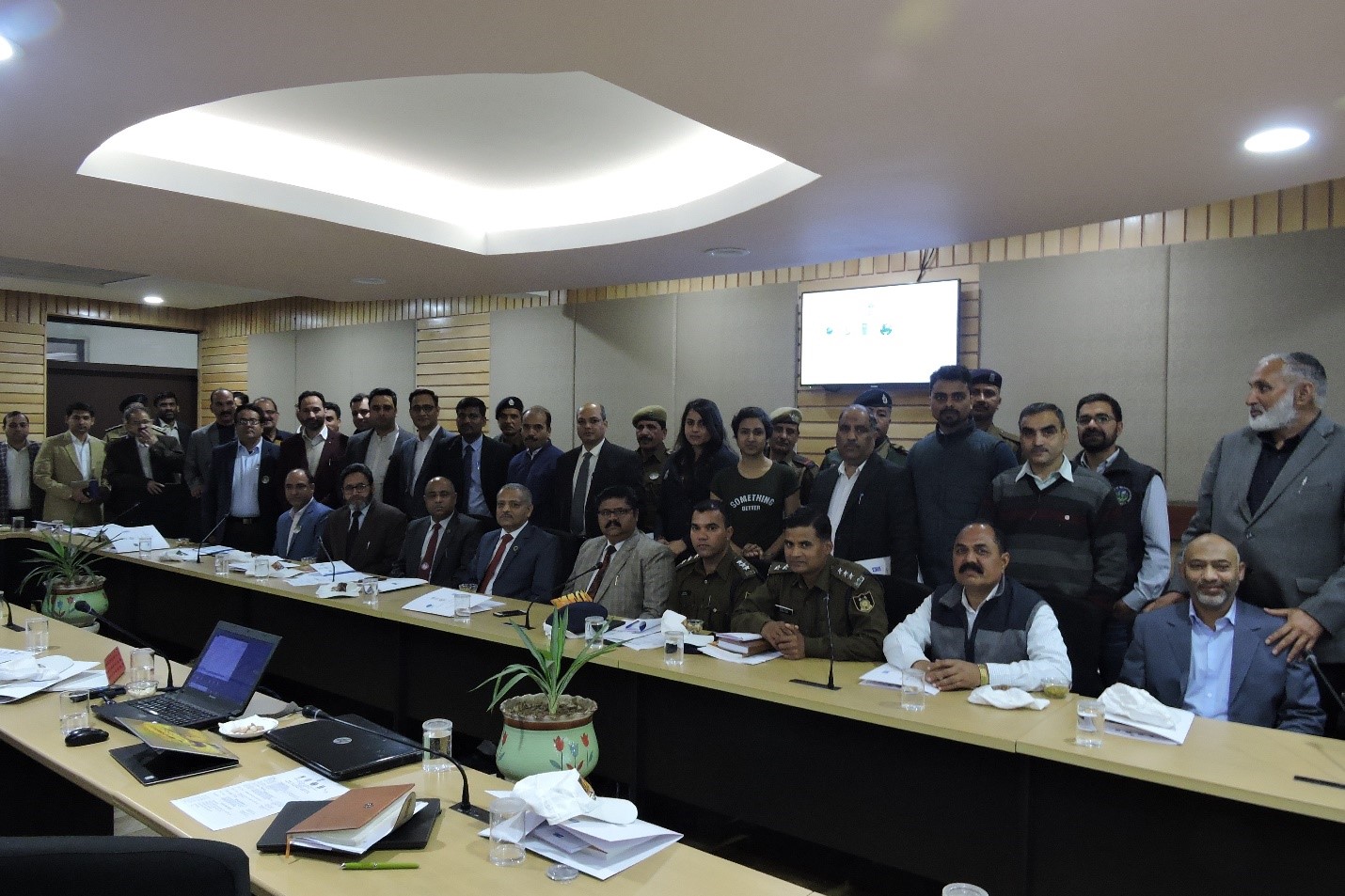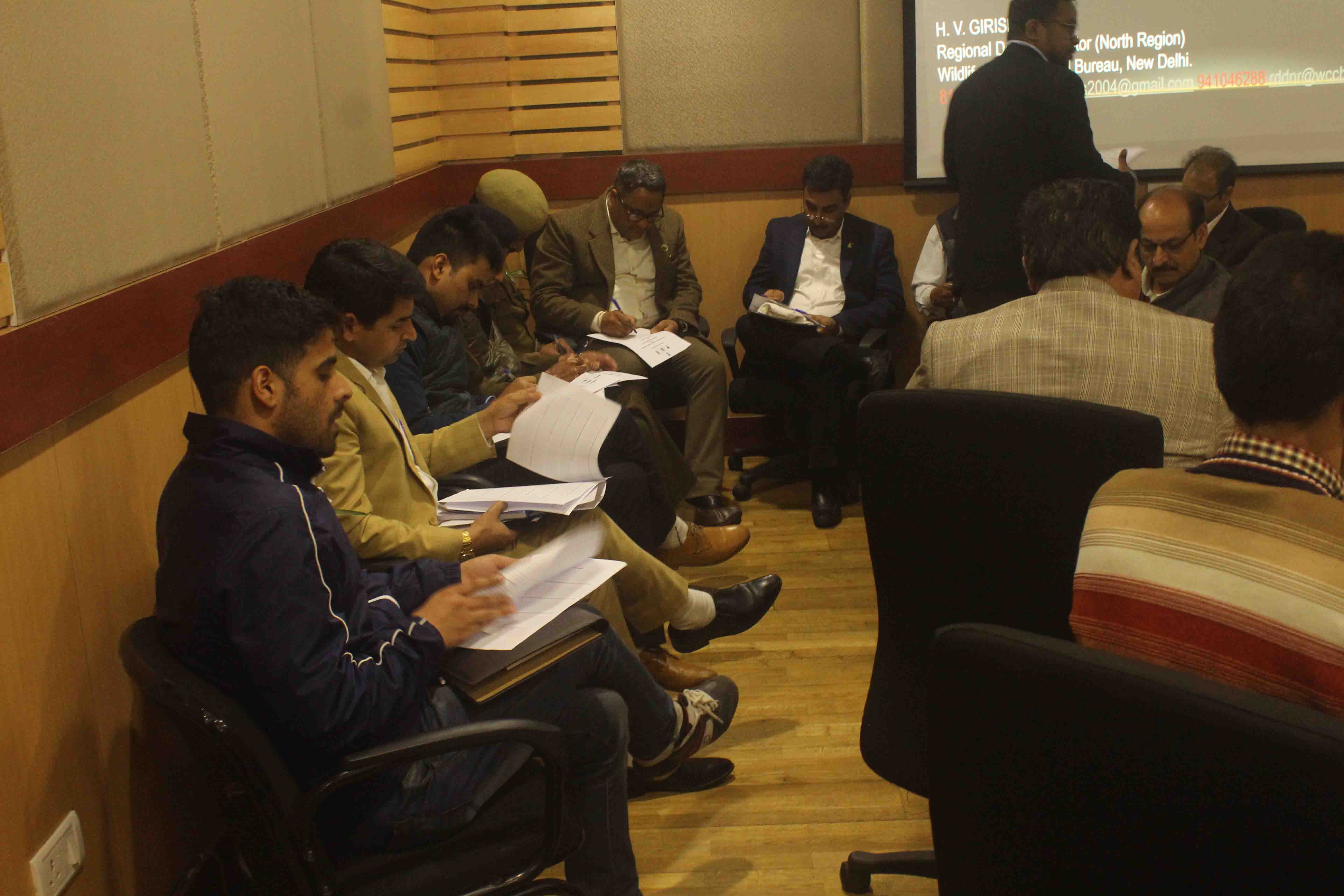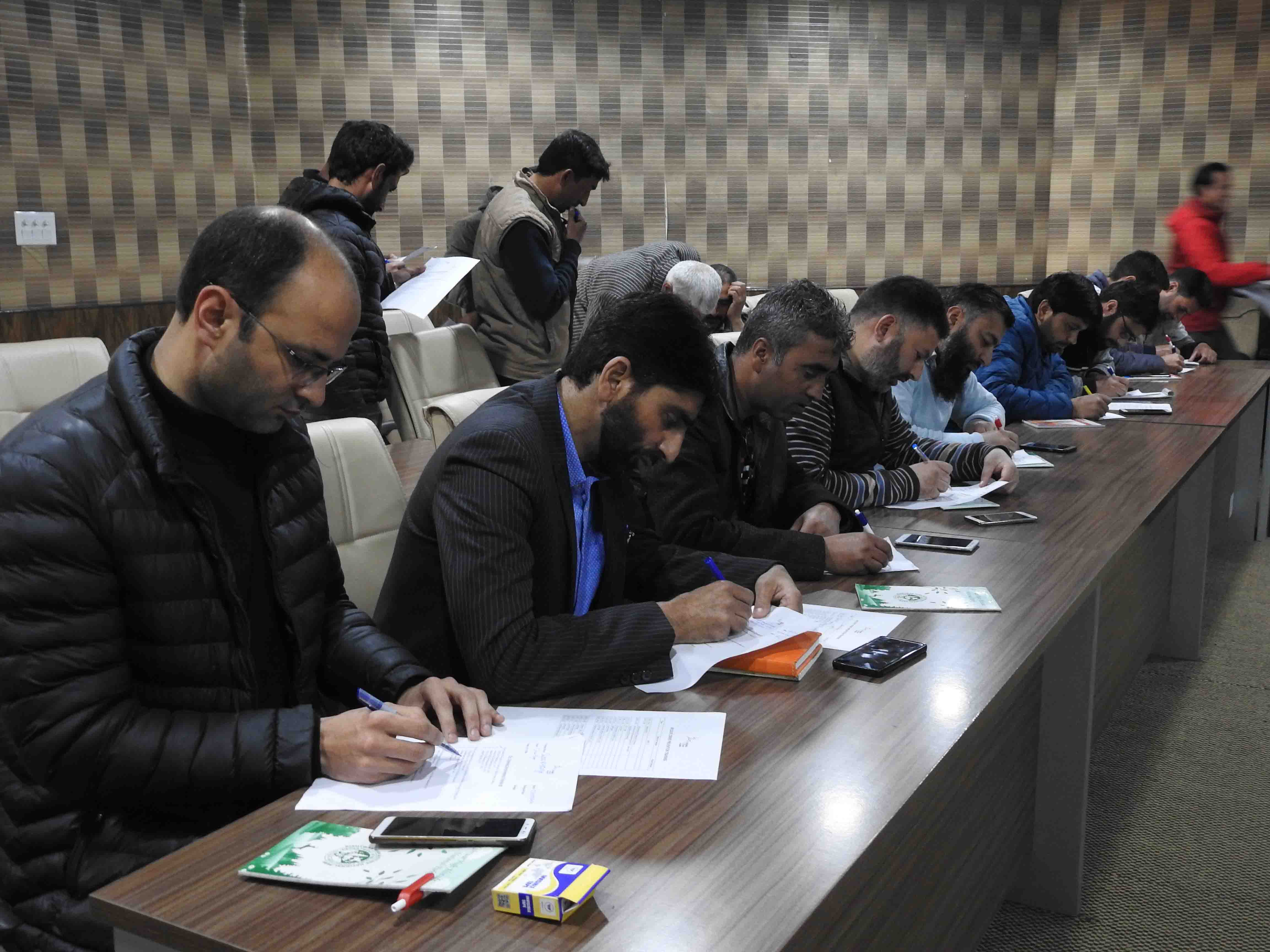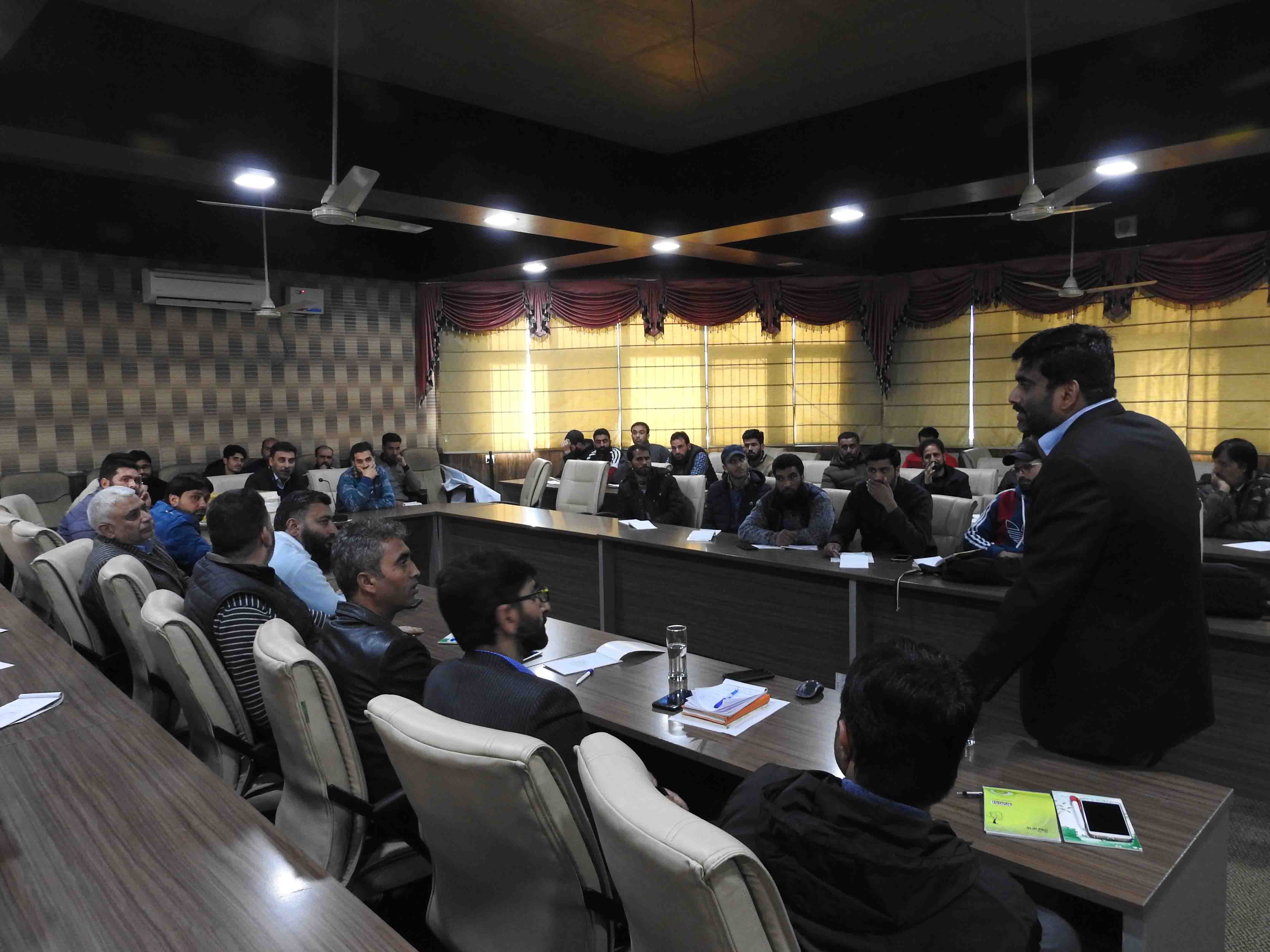Jammu & Kashmir, March 21, 2020
Jammu & Kashmir is famous as paradise on earth and is the top most tourist destination of India. It is the northern most part of India and its greater part is situated in the Trans-Himalayan biogeographic region. Its consists of two major regions i.e., Jammu – Winter Capital of the state and the Kashmir Valley. But with the increased footfall of tourists also comes several major challenges. One such challenge is prevention of illegal wildlife trade of threatened flora, fauna and wildlife products.
Jammu & Kashmir, being one of the newest Union Territories of India, is situated at a strategic location and is important for bio-geographic, historical and economic reasons. It is at the confluence point of different bio-geographical realms. Ecologically this region is of huge importance due to its diverse habitats, which harbor many primitive as well as newly evolved taxa. Geographically, Jammu and Kashmir is home to several valleys such as the Kashmir Valley, Tawi Valley, Chenab Valley, Poonch Valley, Sind Valley and Lidder Valley. The Tawi, Ravi and Chenab are the major rivers flowing through the region. Understanding this situation, Wildlife Trust of India decided to bring all stakeholders together to undergo training and collaborate to reduce the gap that currently exists in the region.

WTI collaborated with Department of Wildlife Protection, Jammu & Kashmir and UNDP to conduct an Inter-state workshop on Prevention of Illegal Wildlife Trade in Jammu on 29th February, 2020. This was conducted under Government of India – UNDP – GEF SECURE Himalayas Project. Officers representing various government and enforcement agencies such as Wildlife Crime Control Bureau, Indian Army, Indo Tibetan Border Police, Police Department, Forest department etc. attended the event. Officers from other stakeholder agencies like Postal department, Airports Authority, Excise department etc. were also present along with representatives of local NGOs and media persons. Also forest department officials representing the state of Punjab was also present at the workshop. The workshop was attended by 60 officials.
The workshop was inaugurated by Additional Director General of Police (armed) Jammu & Kashmir Shri. Arun Kumar Choudhary. The program and its objectives were introduced to the participants by Shri. Jose Louies, Chief and Dy. Director WCCD, WTI. Departmental perspective of Jammu & Kashmir regarding wildlife crime was presented by Chief Wildlife Warden J&K Shri. Suresh Kumar Gupta. Next to it, Regional Dy. Director Northern Region Wildlife Crime Control Bureau Shri. H.V. Girisha presented a comprehensive view on the issue of wildlife crime with reference to the scenario at country level.

Further, WTI team comprising of Shri. Marifatul Haq and Shri. Riyaz Ahmad presented the findings of their study related to wildlife crime scenario in Jammu and Kashmir. Post lunch session a group activity was conducted where participants were divided in to three groups and they brainstormed on various ways to address the gap between working of various agencies as well as efficient methods to combat wildlife crime in the region. After that discussion each group presented their key target points that needs to be addressed for the issue. Finally, Dr. Mohit Gera, Principal Chief Conservator of Forests, Jammu and Kashmir gave the valedictory address and called for synergy between the various departments of Govt. and local public. He further added that such efforts would consolidate and enhance the effective deterrence and monitoring of wildlife related crimes. Finally a vote of thanks was given by Ms. Radhika Bhagat, Head and Coordinator, Wildlife Trust of India.
Also, a VRP training was held at Srinagar, Kashmir region of the Union Territory which focused mainly on training and capacity building of the frontline staff. A two-day training programme for frontline staff of the Department of wildlife protection (J&K) in Wildlife Crime Control and orientation to the Wildlife (Protection) Act, 1972 was organised at Institute of Hotel Management Rajbagh on 3rd March to 4th March 2020. The training programme coincided with the United Nation World Wildlife Day.

The programme was organized by Department of Wildlife Protection (J&K) in collaboration with Wildlife Trust of India. The programme aimed at enhancing the knowledge and skills of frontline staff for curbing incidents of poaching and illegal trade of wildlife. The workshop began in the morning with the participants being introduced followed by a pre-test to check their knowledge about the various aspects of conservation action and provisions of Wildlife Protection Act 1972 after formation of Jammu and Kashmir as union territory. Before the nullification of the article 370, the erstwhile (J&K) was under Jammu and Kashmir wildlife protection Act 1978. The programme was attended by around 40 frontline personnel from the Kashmir. The curriculum included legal and enforcement aspects of the Wild Life (Protection) Act, 1972, as well as wildlife crime prevention components such as the basics of anti-poaching patrolling techniques, intelligence gathering, informer network and handling, search and seizure, interrogation, hunting communities, crime scene investigation and the preparation of Preliminary Offence Reports.
The frontline staff were also oriented with relevant provisions of the Indian Evidence Act, Indian Penal Code and the Code of Criminal Proceedings, and the powers conferred on them therein for the prosecution of wildlife crimes. The theoretical session was followed by a group activity involving the process of framing of charges against a poacher who had been arrested with jaw traps inside a Protected Area. Three groups were formed and each was asked to identify relevant sections of the Wild Life (Protection) Act, 1972, under which the accused could be charged. Mr Louies outlined the most common mistakes that are made while preparing the Preliminary Offence Report (POR) and highlighted ways to minimise these to make a stronger case. He concluded the session by discussing some of the newer techniques of detecting and investigating wildlife crime.

The programme was attended by Rashid Naqash (regional wildlife warden) Kashmir region, Intisar Suhail (wildlife warden) Shopian, Riyaz Ahmad (Project head WTI), Tahir Gazanfar and Sameer Khazir from Wildlife Trust of India.
The post-test was also held and subsequently their performance was rated. The name of the toppers was announced amid a round of applauses. The concluding session was addressed by Mr Jose Louise, followed by certificate distribution to the trainees.